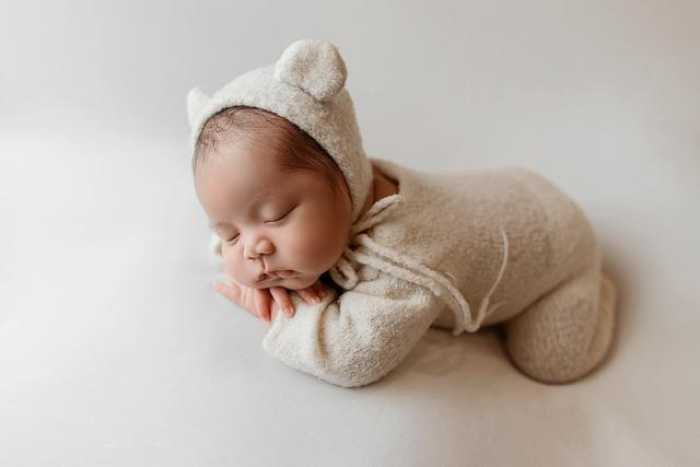Hey there, awesome parents and soon-to-be parents! Keeping your little bundle of joy healthy can sometiems feel like a full-time job (because, well, it is). from sleepless nights to endless diaper changes,you’re already juggling a lot. But don’t worry-we’ve got your back! In this post, we’re diving into some top tips every parent needs to know to keep their baby happy, thriving, and as healthy as can be. Whether you’re a first-timer or a seasoned pro, these easy, practical tips will help make your parenting journey a bit smoother and way more fun. Let’s get started!
Choosing the Right nutrition to Boost Your Baby’s Immunity
When it comes to giving your little one a strong defense system, nutrition plays a starring role in fortifying their natural immunity. Breast milk is often the gold standard for infants,packed with antibodies that help guard against infections. For older babies exploring solids, focusing on a colorful array of fruits and veggies ensures they get a rainbow of vitamins and minerals-think vitamin C-rich citrus, beta-carotene from carrots, and zinc from legumes-all key players in supporting immune function.
Introducing nutrient-dense foods gradually sets the stage for a robust immune response. Here’s a handy list to keep in mind:
- Probiotic foods like yogurt to nurture gut health
- Iron-rich options such as pureed meats or spinach
- Healthy fats from avocado and nut butters (once allergy-safe)
- Hydration with plenty of water or diluted fruit juices
| Nutrient | Food Source | Immunity Benefit |
|---|---|---|
| Vitamin C | Strawberries | Boosts white blood cells |
| Vitamin A | Sweet Potato | Maintains skin & mucous barrier |
| Zinc | Beans | Supports cell repair & function |

Creating a Safe and Clean Environment for Your Little one
Keeping your baby’s surroundings spotless is more than just tidying up-it’s about crafting a sanctuary where germs don’t stand a chance. Focus on regularly disinfecting commonly touched surfaces like doorknobs, toys, and changing tables. Choose baby-pleasant, non-toxic cleaning products to avoid harsh chemicals that could irritate delicate skin or lungs. Also, maintaining proper air circulation and using a humidifier can definitely help reduce airborne germs and keep the environment cozy and comfortable for your little one.
Don’t forget the small details that add up to a healthier space. Here are a few must-dos to create that perfect safe zone:
- Wash baby clothes and bedding in gentle, fragrance-free detergents
- Keep pets’ areas separate and clean to minimize allergens
- Regularly sterilize bottles, pacifiers, and feeding equipment
- Establish a shoe-free zone indoors to limit dirt and bacteria
| Cleaning Task | Frequency |
|---|---|
| Toys and Pacifiers | Daily |
| Changing Station | After Each Use |
| Bedroom Floors & Surfaces | Weekly |
| Air Filters & Humidifiers | Monthly |

Understanding Baby Sleep Patterns and Why they Matter
Babies operate on their own unique sleep rhythms, which can seem unpredictable to new parents. understanding that their sleep cycles differ from adults is key to fostering healthy habits early on. Such as, newborns spend much more time in REM (rapid eye movement) sleep, which is vital for brain progress. This lighter sleep phase means they might wake more frequently, but it’s actually a sign their brains are doing meaningful work! Embracing their natural patterns rather than trying to force adult-like schedules can make nights less stressful and days more enjoyable.
Keeping tabs on these patterns helps parents anticipate needs and recognize signs when somthing’s off. Here are some key points to remember:
- Sleep Duration: Newborns typically sleep 14-17 hours over 24 hours, spread across short periods.
- Sleep Cycles: Each cycle lasts about 50-60 minutes, shorter than adults’ 90-minute cycles.
- Growth Spurts: Sleep patterns can shift suddenly during growth phases, with more frequent waking.
| Age Range | Average Sleep Hours | Typical Wake Times |
|---|---|---|
| 0-3 months | 14-17 hrs | Every 2-3 hrs |
| 4-6 months | 12-15 hrs | 3-4 hrs |
| 7-12 months | 12-14 hrs | 4-6 hrs |
Simple Hygiene Habits That Keep Germs at Bay
Keeping your little one healthy starts with building a solid foundation of clean habits that you can stick to every day. Simple actions like washing hands thoroughly before playtime or meals can make a huge difference in stopping the spread of germs.It’s not just about you-make sure anyone who comes in contact with your baby follows suit.Clean toys regularly, wipe down surfaces with baby-safe disinfectants, and never hesitate to sanitize pacifiers or bottles after use. These small steps create a protective bubble around your baby, minimizing unwanted exposure to bugs and bacteria.
Here are a few easy-to-follow hygiene habits that become lifesavers over time:
- Handwashing before handling your baby: The best defense against transferring germs directly to your little one.
- Regular diaper changes and wiping thoroughly: Prevents rash and infections.
- Keeping baby clothes and bedding clean: Fresh fabrics reduce bacterial buildup.
- Avoiding crowded places during flu season: Limits exposure to airborne illnesses.
- Encouraging older siblings to practice good hygiene: They’re often the sneaky germ carriers!
| Hygiene Habit | Why It Matters | Pro Tip |
|---|---|---|
| Handwashing | Stops virus and bacteria spread | Use warm water and soap for 20 seconds |
| Surface Cleaning | Reduces contamination around baby | Sanitize toys weekly |
| Clothing Care | Prevents skin irritations and infections | Choose hypoallergenic detergents |
Q&A
Q&A: Top Tips Every Parent Needs for Keeping Baby Healthy
Q: What’s the very first thing I should do to keep my baby healthy?
A: Great question! It all starts with good hygiene.Wash your hands before handling your baby, especially after changing diapers or before feeding.Babies have developing immune systems, so keeping germs at bay really helps.
Q: How important is breastfeeding in keeping my baby healthy?
A: breastfeeding is a superstar when it comes to baby health.It provides essential nutrients and antibodies that protect your little one from infections. If breastfeeding isn’t an option, don’t stress-formula-fed babies thrive too, just stay in touch with your pediatrician.
Q: How often should I take my baby for check-ups?
A: Regular pediatric visits are a must! Usually, newborns have several appointments in the first year to monitor growth, get vaccines, and catch any concerns early. Stick to your doctor’s schedule and don’t skip those visits-even if baby seems perfectly fine.
Q: What’s the deal with vaccines? Are they really necessary?
A: Absolutely. Vaccines protect your baby from serious illnesses like measles, whooping cough, and flu. They’re safe, thoroughly tested, and crucial for your baby’s health and also the community’s.
Q: Any tips for keeping my baby’s environment safe and healthy?
A: Keep things smoke-free! Secondhand smoke can cause respiratory problems for babies. Also, ensure that your baby’s sleeping area is free from pillows, blankets, and toys to reduce the risk of Sudden Infant Death Syndrome (SIDS). Fresh air is good, but avoid exposing baby to extreme temperatures.
Q: What about baby’s nutrition after the first 6 months?
A: Around 6 months, you can introduce solid foods alongside milk. Start slow with veggies, fruits, and iron-rich options. Always watch for allergies or reactions, and keep everything nicely mashed or pureed for easy swallowing.
Q: How can I boost my baby’s immune system day to day?
A: Aside from good feeding and hygiene, a little bit of sunshine can work wonders-vitamin D is key! Just a few minutes a day of indirect sunlight helps. Plus, lots of love, sleep, and keeping baby stress-free (as much as that’s possible!) go a long way.
Q: What should I do if my baby seems sick?
A: Trust your gut.If your baby has a fever, isn’t feeding, seems unusually sleepy or irritable, or shows any worrying symptoms, call your pediatrician right away. It’s always better to check than to guess!
Q: Any final pro tip for new parents?
A: Take care of yourself, too! A happy, rested parent means a happy, healthy baby. Don’t hesitate to ask for help and remember, parenting is a marathon-not a sprint.
There you have it-simple, practical tips that can make a big difference for your baby’s health. Enjoy those snuggles!
Wrapping Up
And there you have it-some easy, down-to-earth tips to help keep your little one happy and healthy! Remember, parenting is a wild ride full of surprises, but a few simple habits can make a big difference in your baby’s well-being. Trust your instincts, stay flexible, and don’t hesitate to reach out when you need a hand. Here’s to happy, healthy babies and even happier parents! Cheers to the adventure ahead!











